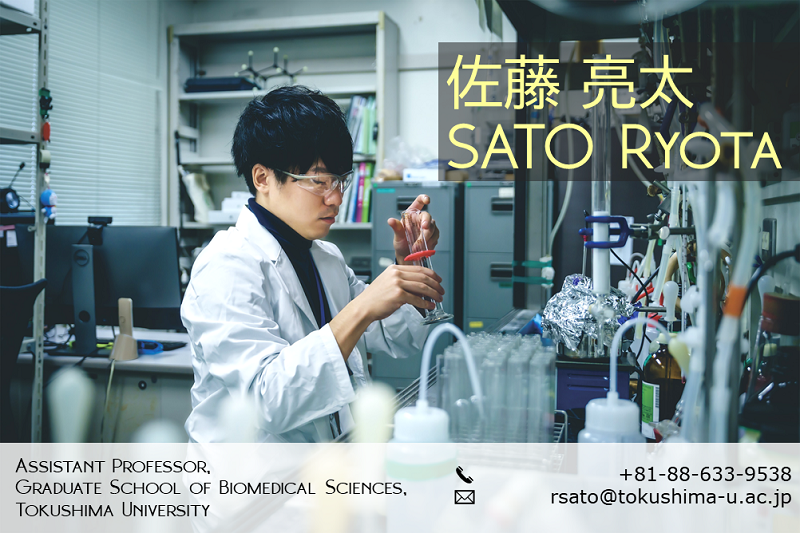

- Ryota Sato, Ryuji Okamoto, Takumi Ishizuka, Atsushi Nakayama, Sangita Karanjit, Kosuke Namba, "Microwave-assisted Tertiary Carbon Radical Reaction for Construction of Quaternary Carbon Center", Chemistry Letters, 48(5), 414-417 (2019). DOI
- Nitinkumar Satyadev Upadhyay, Vijaykumar H. Thorat, Ryota Sato, Pratheepkumar Annamalai, Shih-Ching Chuang, Chien-Hong Cheng, "Synthesis of isoquinolones via Rh-catalyzed C–H activation of substituted benzamides using air as the sole oxidant in water", Green Chemistry, 19, 3219-3224 (2017). DOI
To view a more comprehensive list of publications, please click on the "researchmap" link below.
Born in Nagano, Dr. Sato attended Keio University, and after graduating from the Department of Applied Chemistry, Faculty of Science and Technology in 2014, he went on to study at the School of Fundamental Science and Technology at the same university. Whilst in graduate school, he also studied at the National Tsing Hua University in Taiwan for a month as an exchange student. After acquiring his doctoral degree, he went to the U.S. to work at the Scripps Research Institute as a postdoctoral researcher from 2019 to 2021, before moving to his current post in 2021.
In the field of synthetic chemistry, metals and enzymes had been mainly used as the catalyst to accelerate chemical reaction. However, organocatalyst began to be advocated as the third catalyst group. Its practicality became widely known when it received the Nobel Prize in Chemistry in 2021. Unlike metals which are rare and expensive, organocatalyst, which are not as complex as enzymes, are easier to artificially tune and possess enormous potential. Dr. Sato is striving to take advantage of the characteristics of organocatalyst by trying to develop reactions that could replace metals through combining them with radicals which are strong reactive species. There are risks involved in the use of metals, including those shown by the recent price hikes and by concerns of depletion in the future. Therefore, the synthesis of metal-free organocatalyst is one of the most effective substitutions.

 Home
Home




